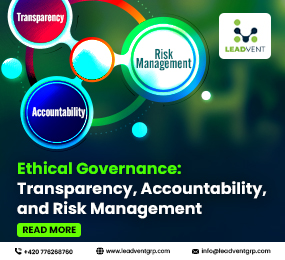ESG and Climate in Africa: Building Resilience in a Warming World
Across Africa, the conversation around climate change is shifting—from distant worry to urgent reality. Droughts, floods, and rising temperatures aren’t just environmental issues—they're economic and social ones, too. For a continent deeply exposed to climate risks, integrating environmental, social, and governance (ESG) frameworks has become not just advisable, but essential.
At the same time, Africa holds enormous potential. It’s home to some of the world’s most promising renewable energy resources, a fast-growing population, and rich biodiversity. The ESG conversation in Africa is increasingly about aligning this potential with long-term sustainability and equity.
Understanding Africa’s Unique ESG Landscape
Africa contributes less than 4% of global greenhouse gas emissions, yet it bears the brunt of the climate crisis. This reality puts a sharp focus on climate justice. ESG strategies in the region need to reflect the dual challenge of reducing vulnerability while driving inclusive growth.
Environmental concerns are front and center. Water scarcity, deforestation, and land degradation directly affect food systems and livelihoods. But unlike wealthier regions, African nations often lack the infrastructure and financing to implement climate resilience at scale. That’s where ESG frameworks come in—not as a checklist, but as a roadmap for aligning public and private sector efforts with meaningful impact.
Momentum from Within
Encouragingly, there’s growing leadership from within the continent. Financial institutions, like Kenya’s Equity Bank and Nigeria’s Access Bank, are integrating ESG into core business practices—not just to meet global investor expectations, but because long-term resilience depends on it.
Similarly, regional frameworks like the African Development Bank’s ESG guidelines are helping standardize sustainability metrics for infrastructure and energy investments. These efforts aim to ensure that development isn’t just fast—it’s also fair and future-proof.
Private Sector and Opportunity
For companies operating in Africa, ESG is no longer optional. Investors are increasingly asking tougher questions about sustainability, governance practices, and how companies manage climate risk. The good news? There’s opportunity in doing it right.
From solar mini-grids in rural communities to sustainable agriculture and green buildings in urban centers, businesses that prioritize ESG are tapping into new markets, building stronger community trust, and mitigating long-term risks.
Bridging the Gaps
However, the road ahead isn’t without challenges. Data gaps, limited regulatory enforcement, and inconsistent ESG reporting standards make it harder to measure progress. What’s needed is continued investment in capacity-building, climate finance, and partnerships that center African priorities.
Looking Ahead
Africa doesn’t need to follow the same path as industrialized economies—it has the chance to leapfrog, building a low-carbon, inclusive economy from the ground up. But it will take intentional effort, grounded in ESG values and backed by local leadership and global cooperation.
Key Takeaway:
Africa’s ESG journey is about resilience, not replication. By embedding environmental and social responsibility into development strategies, the continent is carving its own path toward sustainable, inclusive growth in the face of climate change.
Learn more on our website: https://www.leadventgrp.com/events/esg-and-climate-africa-summit/details
For more information and group participation, contact us: [email protected] .
Leadvent Group - Industry Leading Events for Business Leaders!
www.leadventgrp.com | [email protected]
















